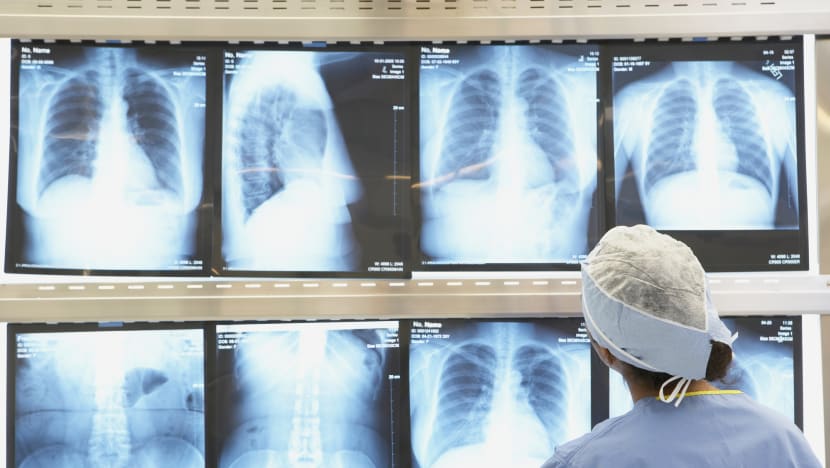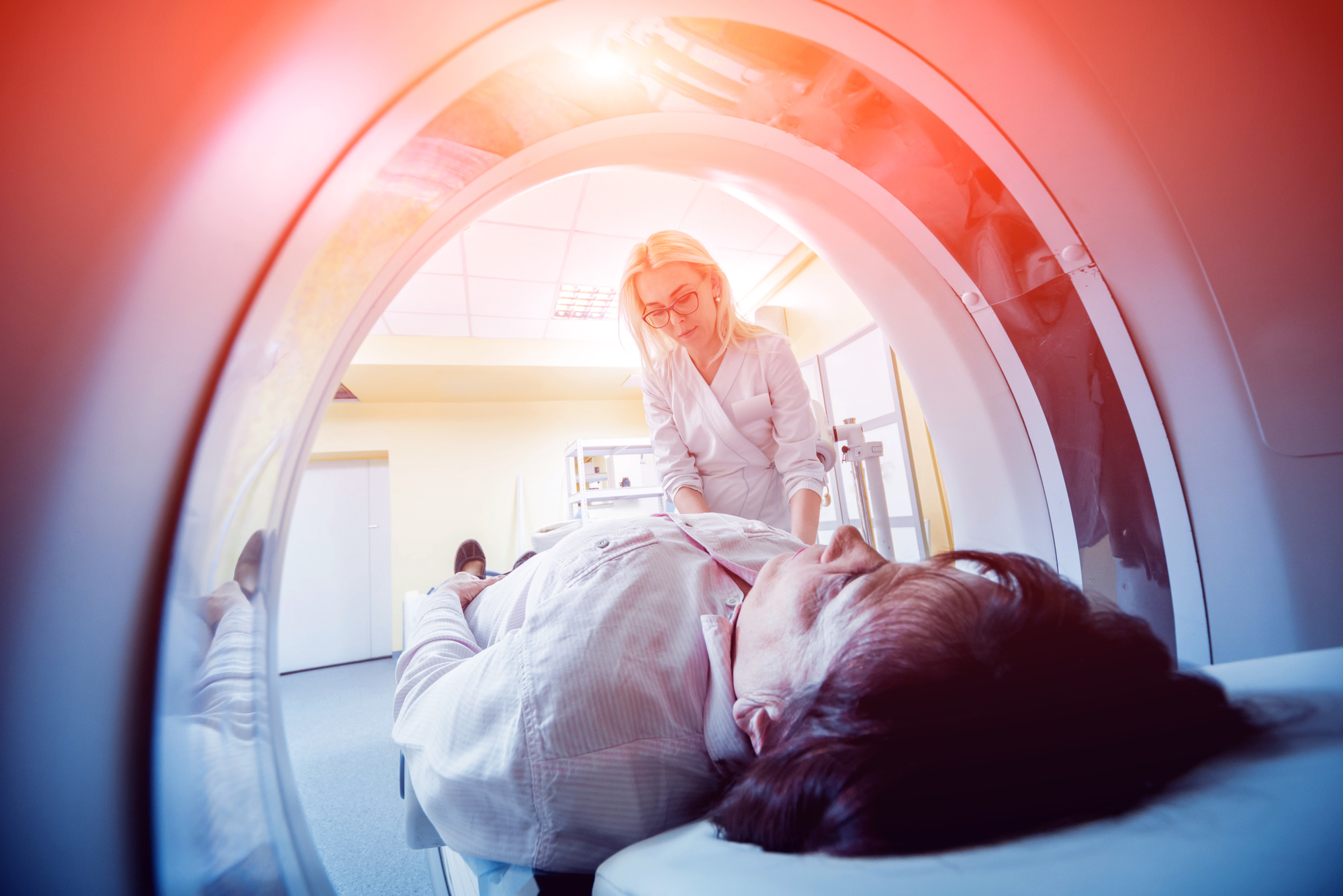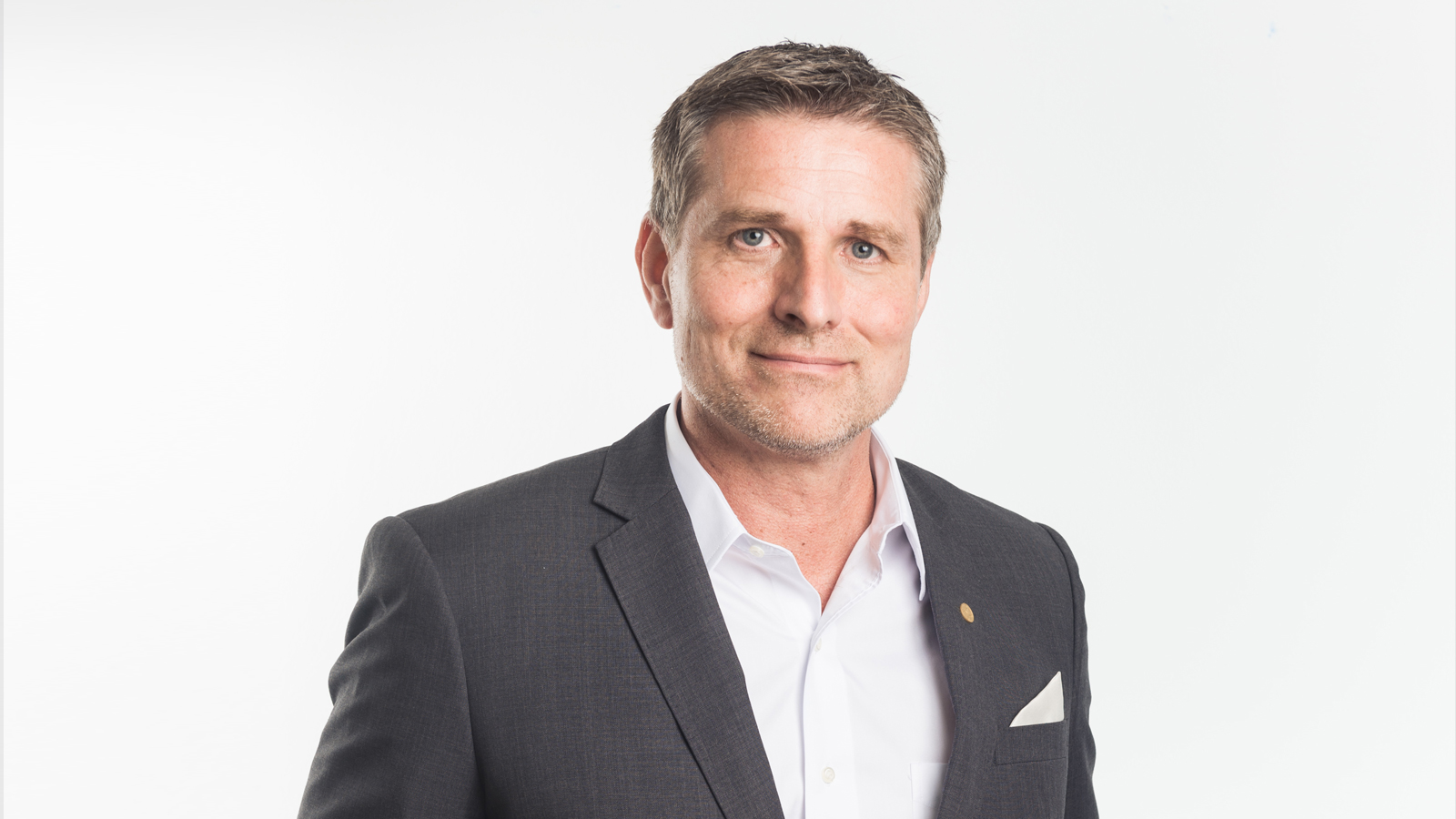Radiology: Enabling better patient outcomes with the right diagnosis
Advances in radiology can improve patient outcomes, drive efficiency and accuracy in healthcare settings, and reduce uncertainty for the patient.

Bayer aims to continue channelling its scientific leadership and technological expertise to help achieve higher levels of diagnostic accuracy, efficiency and safety. Photos: Bayer
Every successful treatment starts with the right diagnosis, and one of the most important tools that healthcare providers rely on for early and accurate diagnosis is radiology.
Radiology allows medical professionals to look inside the human body to provide the right diagnosis, monitor the progression of diseases and support treatment decisions.
While some may think that radiology simply involves the use of machines to run scans, the field also encompasses other aspects of medical imaging, such as the contrast media, the injection and infusion system, the enterprise software solutions, and the service and support needed to keep everything running.
On this International Day of Radiology (Nov 8), global life science company Bayer shares the value that radiology brings to the healthcare system, and how driving holistic, personalised and digital innovations aimed at enhancing diagnosis in radiology matter deeply to a patient’s journey and treatment outcomes.
THE NEED FOR COST-EFFECTIVE, TIME-SAVING DIAGNOSTIC SOLUTIONS
According to Prof Zhang Huimao, director of radiology at the 1st Bethune Hospital of Jilin University, and the vice-chair of China Radiology Society, medical imaging is an often unsung part of the healthcare continuum that nevertheless is paramount in assessing diseases in their early stages.
“A clear image, whether through a magnetic resonance imaging (MRI) or computed tomography (CT) scan, can offer doctors and patients more definite answers during times of uncertainty,” she said. “These images are vital during every step of the disease management journey – screening, diagnosis, treatment choice and monitoring.”

Radiology is especially useful in the diagnosis and assessment of conditions such as cardiovascular diseases as well as breast and liver cancer. The latter is prevalent in Asia, with China alone seeing close to 400,000 hepatocellular carcinoma cases every year. Early diagnosis can play a crucial role in preserving liver function and preventing further spread of the disease in the body.
In breast cancer, tumours that might be missed by standard mammography can be identified through contrast-enhanced mammography and breast MRI scans, while in cardiology, the use of X-ray, ultrasound and MRI techniques can help to provide a clear diagnosis.
Radiology’s role has increased in importance during the COVID-19 pandemic, which saw lockdowns worldwide. Many patients chose to delay health screenings, which has led to delayed diagnoses. As countries begin to reopen, far more patients are seeking diagnoses in clinics. At the same time, radiological imaging data continues to grow with increasing complexity at a disproportionate rate when compared with the number of available trained readers. Studies report that, in some cases, an average radiologist must interpret one image every three to four seconds in an eight-hour workday to meet demands. This highlights the need for more efficient, cost-effective and time-saving diagnostic solutions that still have a high level of accuracy and safety.
This pressure is further compounded by the fact that Asia Pacific – which holds half the world’s population – is expected to grow by 580 million people by 2050, and its rapidly aging population will see an increase in chronic medical conditions that require better radiology solutions.
According to Prof Zhang, radiology can help to improve workflows and assist healthcare providers in focusing on patient care. “An advanced and more automated contrast agent injector can help to reduce the workload of radiologists in between patient scans. A best-in-class contrast agent – which is injected into the patient’s body during scans – ensures each scan is carried out right the first time and with the best image quality, for radiologists to read and assess the images accurately. Finally, the right software can help radiologists personalise the correct amount of contrast agent to be injected, as well as ensure the image is captured at the exact time that the contrast agent enters the organ to be scanned.”
FOSTERING VALUABLE SCIENTIFIC EXCHANGE
To make the most effective use of these innovations and advances, continuing professional development and training is key. Said Prof Zhang: “Radiology is one of the most dynamic fields in healthcare. New technologies are constantly being introduced and radiologists have to update themselves more frequently than in other specialities.”
With its focus on safety, accuracy and speed, Bayer is the preferred scientific partner of many radiology professionals. It fosters scientific exchange with its established networks of radiology professionals worldwide by driving professional education and collaboration, as well as connecting the healthcare community with the latest scientific developments and best practices.

“In the area of education, we have a great responsibility as a global player in radiology, since we have the scientific strength and ability to connect healthcare professionals together from various parts of the globe,” said Mr Per Edlund, Bayer’s head of Commercial Operations, Radiology, Pharmaceuticals Division, Asia Pacific.
Over the last 18 months, through global and regional collaborations, Bayer has organised numerous well-received webinars on CT and MRI modalities to support radiology professionals.
HEALTHTECH INNOVATIONS FOR MEANINGFUL IMPACT
Bayer recognises the potential of digitalisation, cloud solutions and artificial intelligence (AI) in enhancing the quality of medical imaging and analysis, and improving patient outcomes.
As radiological imaging data becomes more complex and the number of trained readers does not increase correspondingly, radiologists burdened by long hours and a heavy workload run the risk of making diagnostic errors. AI and digital technologies can be tapped to turn huge amounts of data into valuable insights, and thus augment the role of radiologists in providing accurate and timely diagnoses. AI can also support time-consuming non-interpretive tasks, freeing radiologists to focus on complex cases.

“From diagnostics to therapeutic innovations, Bayer has an end-to-end medical understanding across many diseases and indications, and close ties with clinical specialists,” explained Mr Edlund. “Our ambition in AI is to connect the dots and assist healthcare professionals in making informed decisions at critical steps within a patient’s treatment journey to ultimately improve outcomes for patients, hospitals and healthcare systems.”
For example, Bayer – along with its partner MSD – is currently developing an AI-powered software to detect chronic thromboembolic pulmonary hypertension, a rare, life-threatening disease that is often difficult to diagnose as its symptoms mimic those of other lung diseases.
Beyond software, Bayer’s innovations include its latest injector system for CT procedures, which has been launched in Hong Kong and Australia, with more Asia Pacific markets to follow. The system enables radiologists to image more patients without compromising on patient safety. This means that radiologists can now devote less effort to running the equipment and monitoring the diagnostic information, and focus more on the patients themselves – in keeping with Bayer Radiology’s philosophy of helping radiology professionals to “Do Less, Care More”.
Working off feedback from its pharmaceuticals network that it was a challenge to identify small cancerous lesions in the liver, Bayer has also developed a liver-specific contrast agent that enables the diagnosis of these lesions without the need for invasive surgery.
“Every successful treatment starts with the right diagnosis. Keeping in mind new trends such as digitalisation, the increasing workload of healthcare professionals, remote access to scans and changes to workflow, our commitment and passion is to drive disease-focused innovation in radiology at a faster pace to address evolving needs,” said Mr Edlund. “We will continue channelling our scientific leadership and technological expertise to help achieve higher levels of diagnostic accuracy, efficiency and safety, and advance the practice of radiology in the region.”
Learn more about Bayer Radiology.















